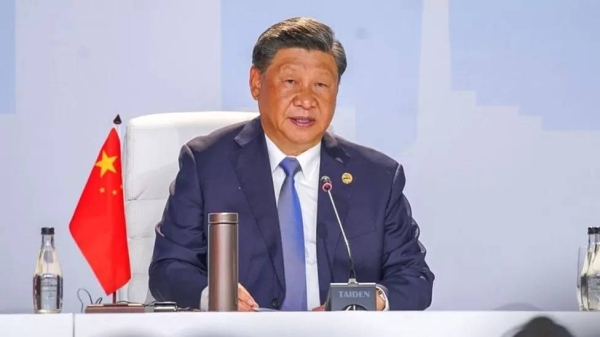
While much of the world is focused on the COP26 climate summit in Scotland, at the other end of the world on Friday and Saturday will be another key meeting — the 21-member Asia-Pacific Economic Council leadership session, featuring Presidents Joe Biden and Xi Jinping, plus Prime Ministers Scott Morrison and Justin Trudeau.
This year’s APEC summit, chaired virtually by New Zealand, will, in the words of Prime Minister Jacinda Ardern, seek to “chart a path to recovery out of a once-in-a-century crisis.” The pandemic has been the biggest economic and political shock since the Second World War for APEC’s near-3 billion population, who generate about 60 percent of global gross domestic product.
Ardern will seek to promote an inclusive, sustainable and resilient recovery and, after extensive preliminary APEC meetings, progress has been made. This includes agreement on a five-year program of economic reforms that will kick-start growth and create jobs.
APEC members have reportedly also agreed this week to reduce or eliminate many tariffs and border holdups on vaccines, masks and other medical products that are important to fighting COVID-19. And New Zealand asserted on Wednesday that the bloc had agreed to reiterate a “strong stance” against vaccine nationalism to support the recovery, and that it is also committed to tackling climate change post-COP26 and progressing on trade too.
However, important as these commitments are, the Friday-Saturday session is likely to show, yet again, that APEC’s consensus-driven approach is creaking. Even before the pandemic, the consensus model had been strained, with the group unable to agree on a communique at its 2018 meeting, while the 2019 session was canceled due to protests.
Ardern’s efforts to promote a pan-APEC approach are being undercut by intra-forum squabbles, especially between the US and China, but also Taiwan and China, which have both applied to join the Comprehensive and Progressive Trans-Pacific Partnership. Beijing says it will block Taipei’s bid on the basis that the island refuses to accept that it is part of China.
Joining CPTPP has become the latest in a string of tensions between China and Taiwan, the latter of which is excluded from many international bodies because of Beijing’s insistence that it is part of “One China.” These tensions have escalated sharply in recent weeks, including repeated missions by Chinese warplanes in Taiwan’s air defense identification zone.
However, it is the US-China bilateral rivalry that could most impede APEC. One manifestation of this tension is the two sides’ differing views over the US offer to host APEC in 2023, which would be its first time since 2011. China is cool on the US proposal and is yet to agree to it, creating an unusual situation for the bloc, which usually decides on venues well in advance.
America’s desire to host the 2023 event reflects the White House’s broader strategy of diverting attention and resources to the region as it moves away from other geographical security preoccupations, such as Afghanistan. Biden wants to shape the regional order to demonstrate his country’s commitment to a free and open Asia-Pacific.
As the Biden team flexes its muscle, it is aware of the Chinese juggernaut being mobilized by Xi in the form of the Belt and Road Initiative, along with the Regional Comprehensive Economic Partnership and the proposed Free Trade Area of Asia Pacific. These last two projects have been under debate since at least 2004 but have assumed new importance for Beijing since the inception of CPTPP, which the Obama team championed.
Xi has said that FTAAP and RCEP do not “go against existing free trade arrangements.” However, at the heart of the debate on these issues are contrasting US and Chinese visions of the regional order. Beijing’s push for the BRI, RCEP and FTAAP provide a non-US alternative model for economic integration shaped by Beijing, with its interests taking center stage. It is in this context that the Biden team is beginning to set out its own stall for shaping the regional order. This includes the new AUKUS security structure, composed of Australia, the US and the UK.
A key question for US allies, therefore, is whether the Biden administration will now step up to the plate and develop a comprehensive, well-funded grand strategy to embed American influence in the region. In the postwar period, the US has undertaken a global institution-building project to encourage the growth of democracy and open markets across the world, including APEC itself. Yet, with Donald Trump pulling the plug on US participation in CPTPP, a vacuum now exists.
And the danger for Washington is that, unless Biden acts decisively, irresistible momentum could build for a regional architecture that allows Beijing to assume the upper hand, damaging US influence not just with local allies, but potentially those farther afield too.












